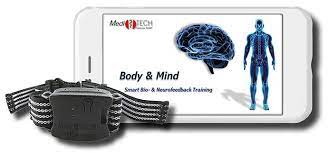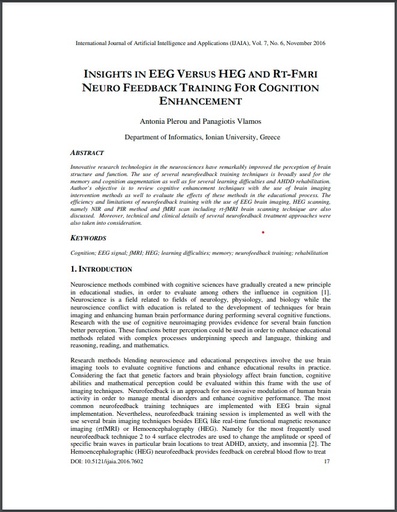
HEG Neurofeedback info channel
Here you will find basic information about HEG neurofeedback. This is a procedure for self-regulation. Unlike conventional EEG neurofeedback, which requires a high degree of self-discipline and especially "sitting still" from the trainee, HEG is extremely easy to use, does not require any pre- and post-processing and is easy for the trainee to understand in its feedback effect.
| Responsible | Ralph Warnke |
|---|---|
| Last Update | 08/13/2024 |
| Completion Time | 1 day 1 hour 35 minutes |
| Mitglieder | 11 |
Share This Course
Share Link
Share on Social Media
Share by Email
Please login to share this HEG Neurofeedback info channel by email.

Innovative research technologies in the neurosciences have remarkably improved the perception of brain structure and function. The use of several neurofeedback training techniques is broadly used for the memory and cognition augmentation as well as for several learning difficulties and AHDD rehabilitation. Author’s objective is to review cognitive enhancement techniques with the use of brain imaging intervention methods as well to evaluate the effects of these methods in the educational process. The efficiency and limitations of neurofeedback training with the use of EEG brain imaging, HEG scanning, namely NIR and PIR method and fMRI scan including rt-fMRI brain scanning technique are also discussed. Moreover, technical and clinical details of several neurofeedback treatment approaches were also taken into consideration.
Publikationen
View allInnovative research technologies in the neurosciences have remarkably improved the perception of brain structure and function. The use of several neurofeedback training techniques is broadly used for the memory and cognition augmentation as well as for several learning difficulties and AHDD rehabilitation. Author’s objective is to review cognitive enhancement techniques with the use of brain imaging intervention methods as well to evaluate the effects of these methods in the educational process. The efficiency and limitations of neurofeedback training with the use of EEG brain imaging, HEG scanning, namely NIR and PIR method and fMRI scan including rt-fMRI brain scanning technique are also discussed. Moreover, technical and clinical details of several neurofeedback treatment approaches were also taken into consideration.